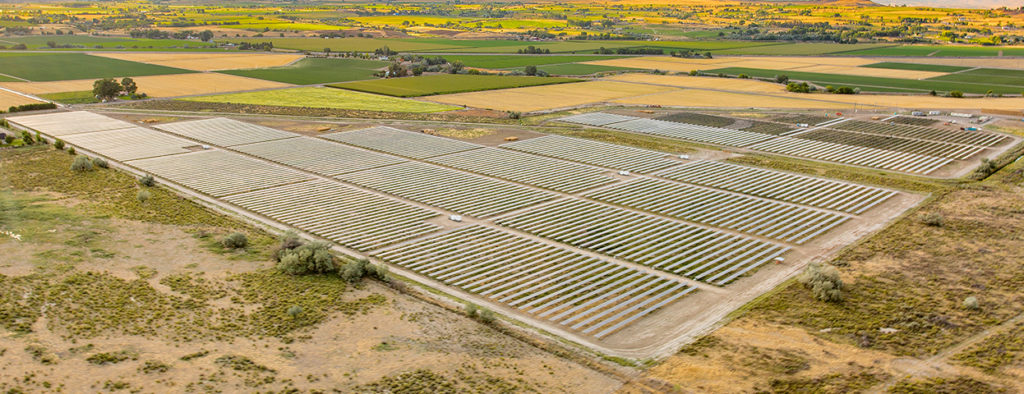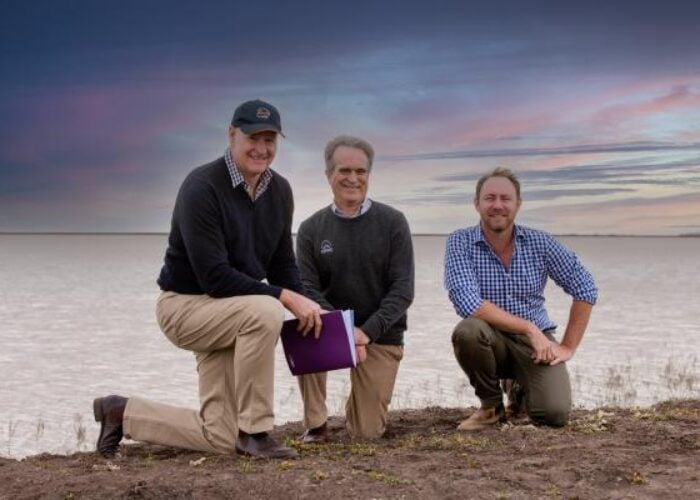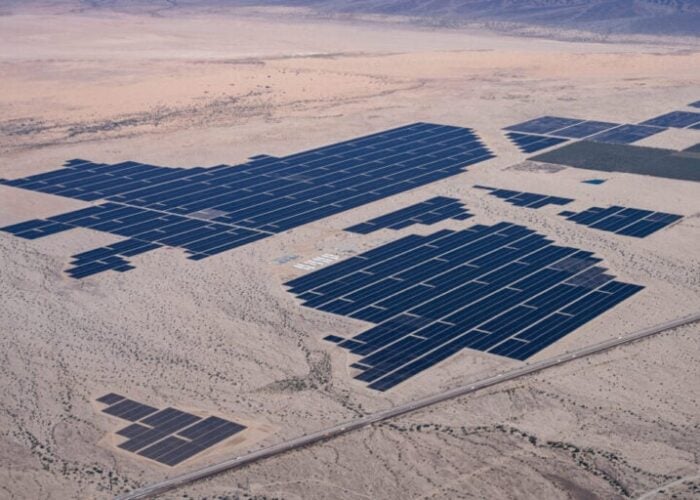
The newly created US Solar Buyer Consortium believes its commitment to purchase 6-7GW of US-made crystalline silicon modules every year has the potential to double US PV production capacity, send strong reshoring signals to the rest of the market and ensure Consortium members are able to meet customer demands.
Announced on 21 June, but in discussion for the past six to eight months, the Consortium was formed by AES, Clearway Energy Group, Cypress Creek Renewables and D.E. Shaw Renewable Investments (DESRI).
Unlock unlimited access for 12 whole months of distinctive global analysis
Photovoltaics International is now included.
- Regular insight and analysis of the industry’s biggest developments
- In-depth interviews with the industry’s leading figures
- Unlimited digital access to the PV Tech Power journal catalogue
- Unlimited digital access to the Photovoltaics International journal catalogue
- Access to more than 1,000 technical papers
- Discounts on Solar Media’s portfolio of events, in-person and virtual
It has committed US$6 billion of funding over the next four years to its plan and has already issued a Request for Proposals (RFP) for qualified manufacturers that can commit to a long-term partnership starting in 2024, giving potential suppliers a couple of years to scale up to a sufficient level, backed by the investment.
PV Tech Premium spoke with CEO of Cypress Creek Renewable Energy, Sarah Slusser, and president of AES Clean Energy, Leo Moreno, to discuss the newly formed Consortium, its objectives, market challenges and the potential advantages it holds for US manufacturing and project development.
‘Urgent need’ for US-made modules
“If we’re going to build a future that is 100% carbon free in the US, we need to have a supply chain that is sustainable and provides energy independence and security,” says Moreno.
The Consortium’s goal is to kickstart this domestic supply chain “in one shot” by providing stable, high volume demand for US-made products, allowing suppliers to scale at speed to service the demand.
“So we made a US$6 billion dollar commitment up to 7GW a year, which represents about 25% of the current US yearly module demand,” Moreno explains, claiming that the initiative could double current US PV production capacity.
“Working as a group were able to provide the significant scale that’s necessary for a manufacturing facility to be efficient at providing the equipment to us,” said Slusser. “We have to be able to provide stable and predictable demand at scale, and that’s really the idea behind the Consortium.”
Both company heads pointed to recent supply chain disruptions in the US, from COVID-19 lockdowns to logistical chaos to trade wars and import tariffs, as further reasons to invest in US manufacturing at this particularly juncture.
“Our joint commitment to procure at this scale can provide the certainty suppliers need to ramp up capacity and overcome current supply chain constraints,” said David Zwillinger, DESRI’s CEO.
The sheer size of the investment would also facilitate market entry to a whole group of companies who may have been reluctant before, buoyed by the strong market signals an investment of this type sends out, said Moreno.
While the Consortium accepts it will be difficult to source modules produced from entirely US-made inputs immediately, the end goal is to establish a complete US-based supply chain, from polysilicon producers down to module makers.
“We’ll want to go as far back up the supply chain as possible,” says Slusser, with Moreno adding that it is likely suppliers will engage in a “phased approach” with easier parts of the supply chain, such as module assembly, provided first before moving back up the chain towards raw material extraction and production.
“And the other piece that is important here is the domestic manufacturing incentives that the US government is still to pass, which will allow this to scale,” says Slusser, who adds that upcoming headwinds could push prices up further without government support.
Benefit to Consortium and its customers
And the benefit of this venture will not solely be felt by the US solar manufacturing sector alone, say the company heads.
Module supply in the US has plummeted this year, with the AD/CVD investigation into alleged circumvention via Southeast Asian countries causing a significant fall in module shipments, logistical problems pushing up prices and causing delays and now the Uyghur Forced Labor Prevention Act appearing to set higher standards for evidence and demanding additional documentation.
All of this means more companies chasing fewer modules in the US, resulting in supply shortages and projects being pushed back.
This should not be a problem for the Consortium, however, as the sheer volume of its yearly demand, coupled with incentives to build out key sections of the US supply chain, should ensure a reliable supply of modules from 2024 onwards, insulating itself and its customers from current disruptions and further shocks, the company heads argue.
This would allow Consortium members to fulfil their obligations to clients as well as attract new business, lured by consistent deliveries of US-made products, so long as their prices remain competitive.
“It will also depend on whether each part of the value change can be built in scale to make it economical for customers to accept,” says Moreno. “So, I think it’ll depend on the offers we get back.”
Request for Proposals open to range of players
The Consortium has launched an RfP for potential partners from across the PV value chain because so many parts of the supply chain do not currently exist in the US, says Moreno, adding that proposals will need to be submitted within the next few months.
“We’re asking a broad range of suppliers, some of whom are not even deeply in this industry yet,” he says, “but they’re big US players [and we want to see them] step up here”.
“And by step up, we mean really developing new manufacturing facilities and moving other parts of the value chain to the US.”
“It will be a competitive process and also rather a fast timeframe, which will allow the cream to rise to the top,” says Slusser. “We expect that there will be multiple participants and probably in the end, multiple players.”
Currently speaking to “every name you recognise in the industry”, the Consortium will expect suppliers to come back within two to four months with the proposals. It will also consider other North American solar companies and not just those US-based, Moreno notes.
“We’ve really gone out to a broad group. We’re trying to stimulate a tonne of interest so that we can get the most competitive and most high quality suppliers into the into the US,” adds Slusser.
Although in its early stages, the Consortium is a major step in incentivising PV manufacturing to the US, enabling greater PV deployment and protecting against current and future module shortages.
While it waits to see what government stimulus packages may be enacted to support its aims, the key thing for the Consortium now is selecting the right partners that will allow it to achieve its goal of kickstarting a PV manufacturing renaissance in the US.







